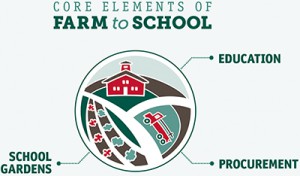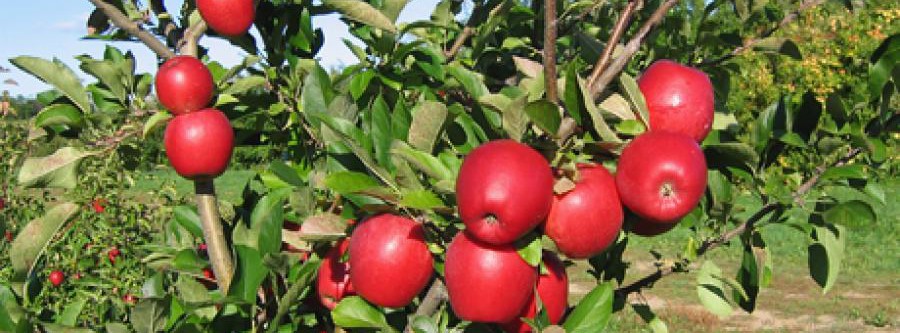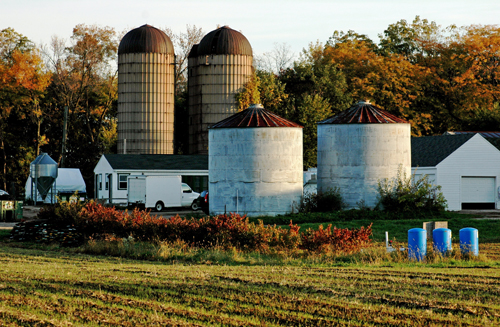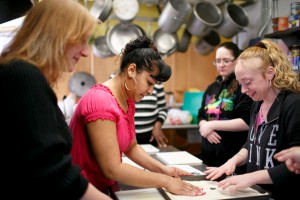TOOLKIT TABLE OF CONTENTS
- Getting Started
- Sourcing Local Food
- Gardening On-Site
- Farm to Summer
- New! At Home and In Community Toolkit
- Food & Agriculture Education
- Early Care Providers
- Farmers & Producers
- Distributors
- Funding
- Advocate for F2S
- Outreach Toolkit
- Boot Camps and Trainings
- Illinois Stories- Listen to our podcast series!
Food & Agriculture Education
Educating on Food & Agriculture
- Taste tests in the classroom or cafeteria
- Cafeteria displays and service line education components
- Science based horticulture or botany education
- Classroom cooking lessons
- Handouts on different foods
- Handouts on different plants
- Curriculum modules
- School Farmstand or Farmer’s Market activities
- And more!
Without an educational element, farm to school programs are less able to impact their students’ attitudes, knowledge and behaviors around food.
The Illinois Farm to School Network provides resources to all Illinois school districts for education in farm to school programs. This website is populated with resources and tools for every aspect of farm to school education. Once you’ve explored this toolkit, check out our Taste Test Toolkit in our flagship program Illinois Harvest of the Month.
Fresh from the Farm
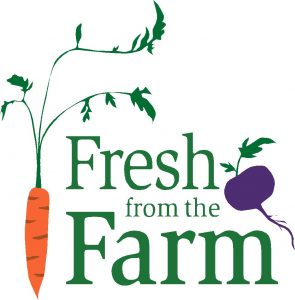 Aligned to the Common Core standards and Illinois State Learning Standards, Fresh from the Farm curricula are designed to engage children from 1st through 8th grades. Each lesson is assigned Common Core Standards. The complete list of Common Core Standards that the nutrition lessons will achieve can be found here.
Fresh from the Farm is comprised of three sets of curricula: Sow and Grow, Roots and Fruits, & Linking Plants and Food. To view these, select “Fresh from the Farm” from the website’s main menu or click here.
Aligned to the Common Core standards and Illinois State Learning Standards, Fresh from the Farm curricula are designed to engage children from 1st through 8th grades. Each lesson is assigned Common Core Standards. The complete list of Common Core Standards that the nutrition lessons will achieve can be found here.
Fresh from the Farm is comprised of three sets of curricula: Sow and Grow, Roots and Fruits, & Linking Plants and Food. To view these, select “Fresh from the Farm” from the website’s main menu or click here. Sow and Grow
Sow and Grow is an elementary curriculum designed to educate children about various plants and their parts, how plants grow, where our food comes from, and what is required to grow a healthy plant.
Roots and Fruits
Roots and Fruits combines classroom curriculum, school gardens, organic farm tours, school lunch reform, and whole school wellness strategies to obtain a positive impact on children’s diet and consumption of fruits and vegetables.
Linking Plants and Food
By incorporating several core concepts, Linking Plants and Food instills a deep understanding of a sustainable food system and uses the local environment as a focal point for learning. This place-based education creates a meaningful and culturally relevant framework for learning.
Resources for Nutrition Education
There are many resources online, free for schools to use in the classroom or garden. Nutrition education is a key element of farm to school, from Pre-K to high school. Students who learn about why eating healthy food is important for their growth, and are more frequently exposed to different kinds of foods, are more likely to eat healthfully. In the classroom, there are many tools and curriculum teachers can use. Here are a variety of free tools for nutrition education with a farm to school lens.
IFSN Curriculum Library
Illinois Farm to School Network has assembled a Curriculum Library including individual food lessons and garden lessons for K-8 and early childcare from farm to school and state agriculture sites across the U.S. This public Google folder is free to use and all lessons within are downloadable .
Great Garden Adventure, USDA
This standards-based curriculum is great for use in classrooms and the garden. The curriculum is designed for third and fourth graders and comes with a good amount of materials, handouts, posters, flash cards, and pre-made activities. Elementary schools that participate in the National School Lunch program are eligible to get a free copy on the USDA website.
Edible Schoolyard Resource Hub
The Edible Schoolyard is a program based in Berkeley, California, that has gained national attention. Their website has user donated curricula modules, lesson plans, and recipes for free use.
Good, Clean and Fair Curriculum, Slow Food USA
Slow Food USA is part of the international Slow Food organization, which organized Terra Madre and the Ark of Taste. In the US, their school garden program features classroom curriculum all about food. The “Good” section of their curriculum is all about building students’ healthy attitudes about trying new foods.
Garden-Enhanced Nutrition Education, Western Growers Fdn.
The Collective School Garden Network has developed an extensive list of resources that link nutrition education to school gardens. Many resources here are used in California school gardens and were developed by the California Department of Education.
Meet The Farmer Videos from Small Bites Adventure Club
This new video series features farmers growing fruits and vegetables, STEAM and agriculture education themes. These videos were created for third graders, but children of all ages will love them!
Take a Field Trip
Field trips to farms are fun for students and teachers and provide great links to school garden programs and local food cafeteria programs. Imagine visiting the farm that is providing your school with milk, apples, or another Illinois product!
Illinois Farm Bureau
If you are seeking a farm to visit, the Illinois Farm Bureau is a great resource. Reach out to your county Ag Literacy Coordinator from Illinois Agriculture in the Classroom to learn more about the farms in your area. IATC also offers the ‘Adopt a Classroom’ program that links schools with ag writers.
Angelic Organics Learning Center
In Northern Illinois, there is an educational farm that offers field trips and workshops for all ages: Angelic Organics Learning Center.
Angelic Organics Learning Center builds sustainable local food and farm systems through experiential education and training programs in partnership with rural and urban people. Angelic Organics Learning Center is a member of the Illinois Farm to School Network.
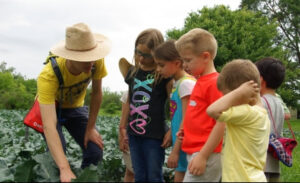
Liberty Prairie Foundation
Liberty Prairie Foundation, a 501(c)(3) private operating foundation in Grayslake, Illinois. The foundation works to build and strengthen the local food system while supporting healthy ecosystems and vibrant communities. Prairie Crossing Farm is the Headquarters for the foundation. The foundation offers many programs such as farm and youth development, leadership and financial support for sustainable local food system development, conservation and environmental education, and social entrepreneurship. Prairie Crossing Farm is an organic farm that is the source of the food used in the Prairie Farm Corps youth program. This is an interactive and educational program where young boys and girls can learn to plant, grow, harvest, and cook organic, locally procured food. The foundation also offers tours on its organic farm and provides links to other nearby farms that also offer farm tours.
Cook County Farm Bureau Virtual Farm Field Trips
Cook County Farm Bureau offers free In-School & Virtual Field Trips for 4th grade students. Topics range from There’s Ag on My Plate to Apples and Pumpkins, and more. You can find information here.
More Farm Field Trip Locations in Illinois
Richardson Farm, Spring Grove IL
Windy City Harvest, Glencoe IL
Sonny Acres Farm, Chicago IL
The Center, Palos Park IL
Rader Family Farm, Normal IL
Blue Ridge Community Farm for Special Needs Adults and Children, Chillicothe IL
Primrose Historic Dairy Farm, St, Charles IL
Pushing the Envelope Organic Farm, Geneva IL
Kline Creek Farm, DuPage CO. Forest Preserve District, Wheaton IL
Orchards and Pumpkin Farms
Indian Creek Pumpkin Farm, Petersburg IL
Eckert’s Farms, Multiple IL locations
Kuipers Family Farm, Maple Park IL
Dittmar Farm and Orchard, Elizabeth IL
Heap’s Giant Pumpkin Farm, Minooka IL
All Seasons Orchard, Woodstock IL
Goebbert’s Farm and Pumpkin Patch, Pingree IL
Illinois Farm Field Trip Resources
Are you an Illinois farm who hosts field trips on your farm? Contact us and we will add you to the growing list of farms participating across the state! Email us at
Get the Parents Invovled
Many farm to school education programs incorporate parent education as a part of their curriculum. There are many benefits of bringing parents into the program, and these can include:
- Holistic integration of healthy food eating behaviors
- More student familiarity of healthy foods, resulting in less cafeteria food waste
- Local farm product is more familiar at the store or farmers’ market, resulting in more economic benefit for farmers
- Parents learn about gardening alongside students, resulting in more community and backyard gardens
- And more!
Those were just a few examples of why bringing parents into farm to school programs works. Many non-profit organizations also give nutrition and cooking classes to parents in a way that is consistent with farm to school ideas.
Here are some programs with resources on how to effectively teach parents, from cooking to shopping.
Meatless Mondays
Eating less meat and more healthy plant-based foods can help reduce the incidence of chronic preventable diseases, preserve precious land and water resources, and combat climate change. Creating a Meatless Monday campaign is a great way to connect your garden to your parents and families at home!
Cooking Matters
Cooking Matters provides free resources, including lesson plans for all ages, recipes, handouts, and more, for those in the community who want to provide food education to families.
Chop Chop Family Resources
Chop Chop Family Recipes features recipes, monthly newsletters and more to educate kids at home about cooking healthy meals. The Chop Chop Kids Cooking Club is a free cooking challenge for kids.

